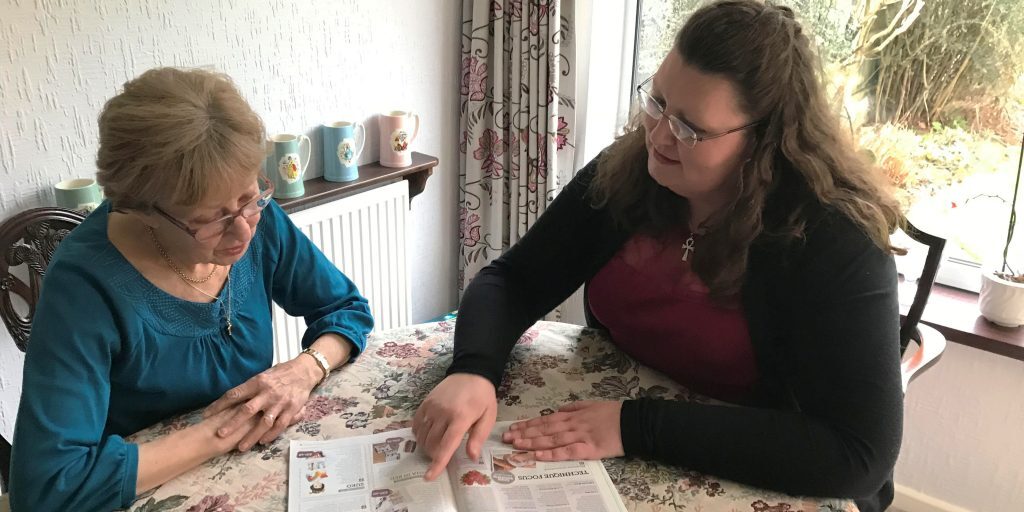Communication Difficulties
This page will help you to understand the most common difficulties some people experience following a stroke or brain injury, that I can help you with.
Language Problems - Aphasia
If you're struggling to find the words that you want, to understand what you're reading or to use your phone, these can be symptoms of Aphasia. It is a recognised difficulty that occurs when the language areas in the brain are affected by a stroke or brain injury. Aphasia can be present when speaking, listening, reading or writing, as well as impacting upon activities involving numbers such as time telling and paying bills.
Aphasia can range from mild difficulties such as taking time to recall a particular word in a conversation to severe difficulties resulting in problems speaking or writing a single word. The severity of the difficulty does not necessarily correspond to how aphasia affects a person’s life.

Find out more...
Find out more...
Difficulties Co-ordinating Speech – Apraxia
Apraxia is a difficulty with the movements required for speech. It affects the co-ordination of these movements and can result in sounds within words being missed out, substituted for another sound, or formed incorrectly.
This can affect how clearly someone speaks and at its worst apraxia can mean someone is unable to speak at all. It can occur alongside aphasia as the areas of the brain responsible for these conditions are located near to one another.

Muscle Weakness - Dysarthria
Dysarthria is another difficulty concerning the movements required for speech but is as a result of muscle weakness. It can affect different aspects of speech such as breathing, volume of voice, accurate production of sounds and rate of speech.
This can affect the overall clarity of speech and make it difficult for others to understand. When muscle weakness is present, some people can also experience difficulties controlling saliva.

Swallowing Problems - Dysphagia
Dysphagia is the medical terminology for a swallowing difficulty. Swallowing difficulties can affect the ability to swallow food or fluids or both. Some people with swallowing difficulties require tube feeding, instead of or to supplement, oral intake.
If swallowing difficulties are not effectively managed, secondary complications such as weight loss and chest infections can occur. As a Speech and Language Therapist it is important to work alongside other professionals such as doctors and dietitians to manage swallowing difficulties.

How I Can Help
I offer a free telephone or email conversation with you, or with a relative or friend, to ensure that I believe my skills are the most appropriate for your needs.
Next, an initial assessment will take place within your home, during which we will discuss the difficulties you are experiencing, how these are impacting upon your life, and ways in which I can help. This usually takes between 60 and 90 minutes depending upon your needs.
After the assessment appointment, I will advise on how best to proceed. I may offer written information and advice, exercises or strategies for you to complete independently, further therapy sessions, a formal report on your needs or a combination of the above.
You are free to choose those which you feel most able to tolerate and participate in and are not tied to committing to a given number of sessions. You are also free to choose the frequency of any sessions you wish to undertake, although I will of course advise you on what I feel is the most realistic for the outcomes you wish to achieve.


